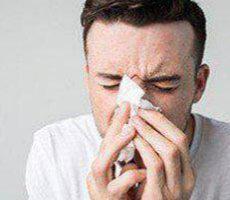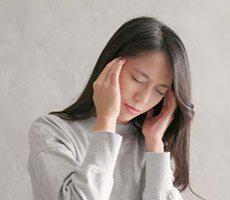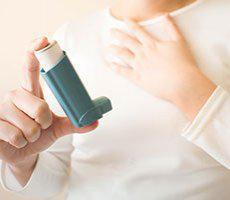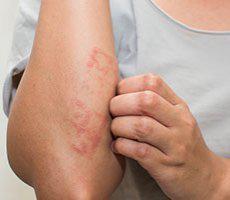Allergy Update From an Allergist NYC
Enjoy the Spring Season
Stay Ahead of Your Allergies and Asthma During This Allergy Season.
This time of year can be very wonderful and yet can be challenging for people with allergies and asthma. The spring season can present many health challenges, unique to this time of year. Now that the winter is over, get back on track with a good healthy routine of exercise and eating right! Surviving—and enjoying—the spring is easier when you plan ahead and take preventive action. We’re constantly providing our patients with the most updated information and tips that will help you get through this season.
The Spring Allergy Season Brings More Than Just Sneezing And Wheezing...Are You Prepared?
Allergies
If you suffer from allergies you may be experiencing some unpleasant symptoms such as: sneezing, runny nose, itchy watery eyes, rashes, hives or other skin conditions. Also shortness of breath, coughing. It's not a cold! It's allergies!
You may very well be allergic to such allergens as: pollens, molds, dust mites, foods, animal dander, drugs or other environmental sources.
What can you do?
- 1. First, see an allergy specialist, also known as an allergist.
- 2. Get tested and evaluated by your allergist to determine what your individual needs are.
- 3. Discuss treatment with your allergy specialist. Treatment can take the form of medications, shots or holistic treatments.
Allergy or cold? See an Allergy Specialist!
You can't breathe through your nose. Your head aches and your eyes water constantly. Are you suffering from a viral infection or an allergy to dust mites, pollens, etc.? An allergist will be able to help you sort out the symptoms.
With symptoms lasting for days, colds are the leading cause of work and school absenteeism. However, allergies may persist for weeks. When you know the difference between allergies and a cold, you can save time, money and health. Schedule an appointment with an allergy specialist today to decide whether you are suffering from allergies or a cold and choose the treatment that is right for you.
Signs and symptoms of each can include: | |
Allergies
| Cold
|
Why suffer these symptoms when you can be treated by the best allergist NYC offers?
Suggestions from an allergist on keeping your home allergen free:
- Wash all bedding with hot water
- Remove carpets and drapes
- Vacuum floors/rugs with a HEPA filter vacuum
- Choose leather, wood, metal or plastic furniture—not upholstered furniture
- Keep all rooms free of dust
- Clean air conditioner filters/vents regularly
- Clean blinds regularly
- Keep any molds at bay: remove leaves outside, waterproof basement or other condensation
- Check your pipes for leaks or under cabinets, seal any interior or exterior cracks
- Keep your house temperature at 70 degrees and relative humidity at 30-50 percent
- Hire an exterminator
- Keep your home smoke-free
- Do not dry clothes outside—use your dryer.
- When you return to your home from work or school, take a shower to wash off the day's accumulation of pollens, dust mites, etc.
- Doing renovations can exacerbate your allergies and asthma. Take all precautions.
- Wipe surfaces with a damp cloth.
Travel Health Tips
If you need to travel during the fall and winter, remember your allergies and be prepared! Consider scheduling an appointment with an allergy specialist to discuss your upcoming travel plans and how they may affect your allergies.
- With new airline security regulations: having a medical note from your doctor when traveling allows you to carry medications, food, and water during your flight.
- Always remember to avoid exposure to smoke when traveling.
- Call ahead to airlines, hotel, and restaurants and let them know you have certain food allergies. The chef can prepare all your meals without worries or you can pack your own.
- Try to avoid buffets (hidden offenders).
- Drink plenty of fluids.
- When eating out, watch out for sulfite additives.
- Check the vents in your car before long trips.
- Have medications/epi-pen on hand when exercising or traveling.
- Know the location of the nearest medical center in case of emergency.
- If dealing with a child - let the staff have a picture of your child. This way you can have more peace of mind that he/she will not be given offending foods. If your child is going away to camp, let them know all the precautions regarding your child's allergies.
- Watch out for the country forests, tropical rain forests and avoid hiking in high elevations. Also, try to avoid going out on humid, rainy days. Air conditioned environment is better.
- Don't forget your epi-pen and medications. Carry them with you always, never in your suitcase in case it gets lost! Always know where the nearest doctor's office or hospital is.
- Have your allergist or doctor give you written instructions for emergency treatment if necessary.
Now go ahead and enjoy the season ahead!
What's the latest allergy/asthma news...
Dr. Evelyn Tolston, a well respected allergist NYC is home to, is happy to bring you all the latest news related to allergies and their symptoms, treatments, and testing.
*According to the American College of Allergy, Asthma & Immunology States: skin prick testing still offer the highest positive/negative predictive value in comparison to lab testing...
According to the American College of Allergy, Asthma & Immunology States: skin prick testing still offers the highest positive/negative predictive value in comparison to lab testing...
There are so many clinical trials and news regarding alternative treatments and holistic approaches for Allergies & Asthma. Never start a program without the supervision and guidance of your doctor and/or allergist. To separate fact from fiction, please contact our office.
- Freeze-dried stinging nettles and tonic made from goldenseal
- Vitamin C
- Abigenin
- ALA
- Butterspur
- Bromelain
- Bee pollen-avoid if allergic to bee stings!
- Grape seed extract
- Low-sodium diet
- Quercetin
- MSN
- Omega 3
- Selium
- Spirulina
- Natural nasal/saline washes
- Maintaining proper weight
- Hydrotherapy
Food Allergy Tips from an Allergist
Many people live for bountiful buffets and delectable desserts. However, these delights can sometimes prove to be troublesome for people with food allergies.
The chance of an accidental ingestion of the foods that can cause an allergic reaction may not be as high during the fall and winter as during warmer months, but it can take only a tiny amount of the offending food to trigger a potentially dangerous reaction.
Remember, the most common food allergies are: milk, legumes, eggs, soy, wheat, various nuts, fish, etc. Hint: Watch out for the baked goodies and picnics-there is no ingredient list! There could be hidden allergens that can cause severe reactions to those with mild or sensitive allergies!
Be prepared by having "self injectable epinephrine" when attending parties and PLEASE inform family and friends of your condition. If you have children, remember to pack their snacks so they don't feel left out. This will insure that your child has something safe to eat.
AVOID the following foods if you are allergic to their main ingredient (such as eggs, milk, wheat and nuts):
- Baked goods/pastries
- Meatballs
- Cheese
- Quiche
- Glazed rolls/breads
- Ice cream
- Macaroni mixes
- Salad dressings (that might contain fish—e.g., Caesars)
- Mixed nuts
- Vegetable and chip dips
Peanut Information
Avoid baked goods and buffets. The aroma of peanuts in airplanes can cause a reaction to someone who is sensitive to peanuts.
"Allergy dog." Poodles, Labradors, and German shepherds are being trained to save the lives of those with serious "peanut allergies." Dubbed the "peanut dog," the poochies can sniff and detect a minute amount of peanuts or other allergens. Then they signal their owners to steer clear. Some patients say the dogs can even sniff the hand of a playmate to determine whether hand-washing is in order.
Recent studies show positive results with children with peanut allergies – stay tuned.
Anaphylactic reactions
Symptoms of food allergies can be: Tingling in mouth, swelling of the tongue and throat, difficulty breathing, hives, vomiting, abdominal cramps, diarrhea, drop in blood pressure and unconsciousness. Symptoms usually appear within minutes to a few hours. If you or someone near you begins exhibiting any of these symptoms be sure and contact a doctor or allergy specialist immediately!
Remember, the best treatment for a food allergy is strict avoidance of the allergy-causing foods.
Stay tuned for more tips...!
Did you know?
- Asparagus reduces hay fever symptoms. Its folic acid lowers the level of immunoglobulin E,the antibodies that set off allergic responses. This can reduce respiratory symptoms like "wheezing" by 40%.
- Snacking on grapes, which contain high levels of resvertrol(all natural anti-inflamatory), children had less wheezing and allergy symptoms.
- Apples for asthma - Keeps the doctor away.
- Kiwis are loaded with Vitamin C.
- Tomatoes, carrots, and leafy greens could lower your risk for asthma, according to a new study by the National Institute of Public Health. These vegetables are high in vitamin A, which helps regulate the immune system and maintain the lining of your respiratory tract.
- Snack on almonds (if allowed in your diet), which are rich in magnesium and help the lung function better, as well as reduce the discomforts of asthma/allergies. It's known that low levels of magnesium raise your levels of histamine, which is the chemical your body produces when having an allergic reaction.
- According to recent studies, exposure to antibiotics in the first year of a child's life may double the risk of developing asthma later in childhood.
- According to a group of Harvard researchers focused on nearly 1200 women and their babies during and after pregnancy - "what they found?" - for every 100 units of vitamin D consumed during pregnancy, there was a dramatic decrease in the risk of wheezing incidents and the high risk of asthma in babies up to age 3 (fortified dairy products like skim milk, low-fat yogurt, low-fat ice cream, or from a supplement).
- Vitamin D has also been shown to have immunologic effects.
Did you ever think that there are other reasons for sneezing? If you are allergic to...
- ragweed: watch out bananas, cantaloupes, honeydews, watermelons, cucumber, zucchini, chamomile tea, sunflower seeds;
- birch pollens: avoid apples, cherries, kiwis, nectarines, peaches, pears, plums, tomatoes, carrots, celery, peppers, parsnips, peas, potatoes, anise, caraway, cumin, dill, fennel, parsley, walnuts and sunflower seeds.
- grass pollens: avoid kiwis, melons, oranges, tomatoes, celery.
- lactose intolerant: You still need your calcium! Try other sources, like broccoli, salmon, yogurt.
Great news!
The US Food and Drug Administration has approved a new anti-IgE drug called XOLAIR. This is a GREAT NEWS for people with a serious form of allergic asthma and could revolutionize how all allergic diseases are treated! Another new drug on the market is ASMANEX. Consult Dr. Tolston, a recognized allergy specialist, now!
Tips...
Insomnia: Get a good night sleep! Your body will thank you. Stuffy nose, post- nasal drip-these allergies can wreak havoc on you sleep. Stress also exacerbates allergies and asthma. Meditation is a great reliever.
Shower: Pollens stick to everything including you hair and clothes. Take a shower as soon as you arrive home. Warm facial compresses and nasal irrigation are great for relieving inflammation.
Sinus infections facial pain or nasal discharge: Definitely see your allergist as soon as possible, but did you know that saline nasal irrigation is very effective in clearing congestion?
Pets: We love fido but keep him out of the bedrooms and off the furniture. Wash your pet often. Wash your children's toys daily.
Mold Allergies: April Showers Bring More Than Flowers Whether working outdoors or in your garden, from planting flowers to raking leaves, to choosing logs for the fireplace, you need to be prepared! Clear all wet leaves and dirt from areas surrounding the foundation of the house, to prevent outdoor mold from building up near windows and doors that would eventually enter the home. Keep firewood outside the house. Wear protective clothing and keep your medications on hand. Mold flourishes indoors if humidity is high! Keep your house dust to a minimum. Take precautions when mowing the lawn and when tending to your garden. Avoid outdoor exposure on rainy days. Molds grow not only on old bread, but also cheeses, mushrooms, dried fruits, soy sauce, sour cream, and hot dogs. Avoid fermented foods and wine. Watch the humidity levels. Keep at 20-40% to control allergens and to breathe comfortably. Get rid of rugs and carpeting. Wood floors are the best and oh-so beautiful.
Avoid outdoor allergens: close windows, avoid going out on windy days or early in the am. In the winter try exercising indoors—yoga, etc., is great!! Check your water heater-wash sheets/bedding in at least 130 degrees to kill dust mites and cover mattresses and pillows with special allergen-proof covers. Install a dehumidifier in the basement.
Love the garden! Planting the right plants in and around your home:
Plant only female plants, like those that produce fruit and others like
- Fruit trees: apple, cherry, pear, plum
- Grasses: St. Augustine
- Shrubs: azalea, boxwood, English yew, hibiscus, hydrangea, viburnum
- Flowers: begonia, cactus, chenielle, clematic, coloumbine, crocus, daffodil, daisy, dusty miller, gerium, hosta, impatients, iris, lily, pansy, periwinkle, petunia, phlox, salvia, snapdragon, sunflower, thrift, tulip, verbena, and zinna.
T'is the allergy season...
- March–May: tree pollens
- April–June: grasses
- August–November: ragweed
- Mold & dust mites: all year round







